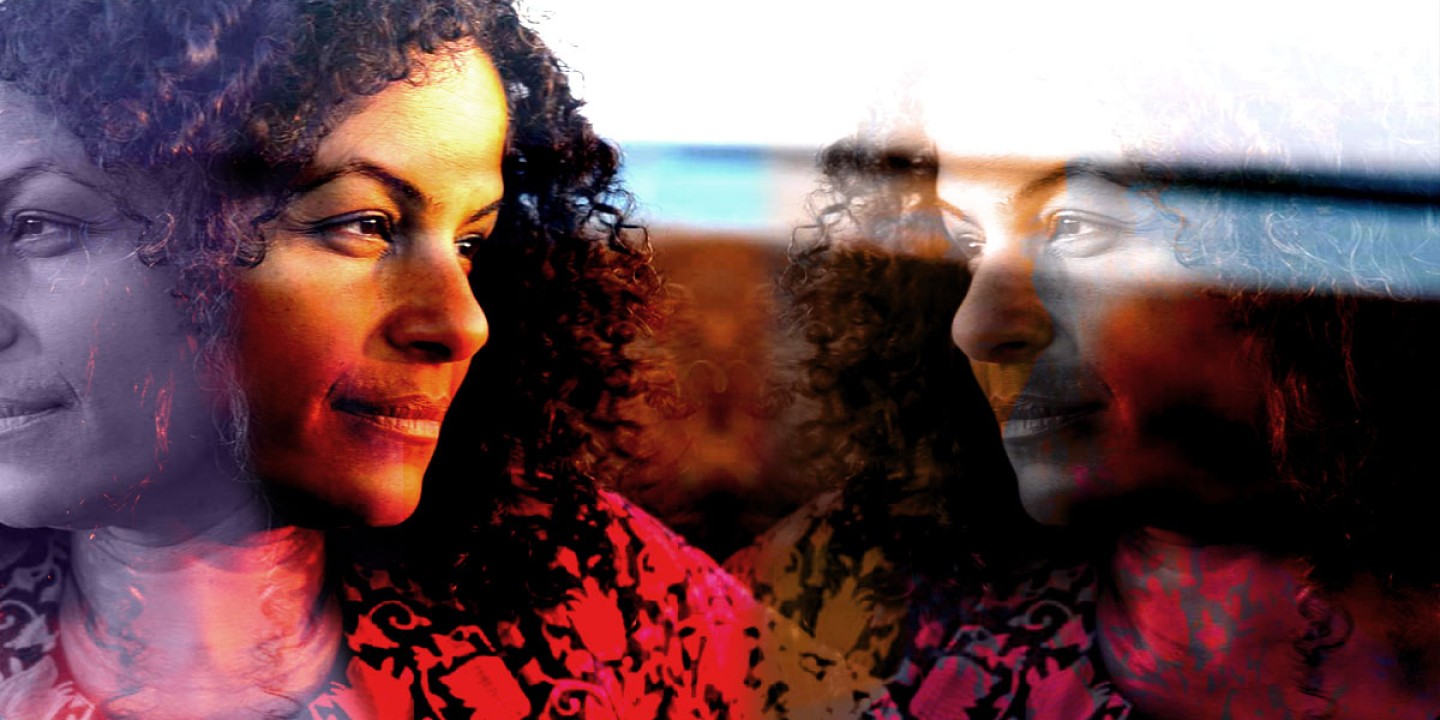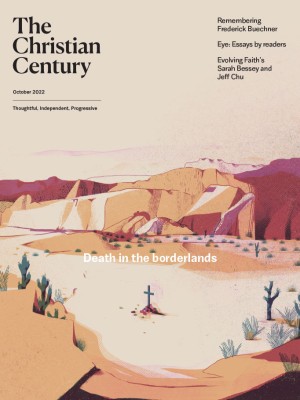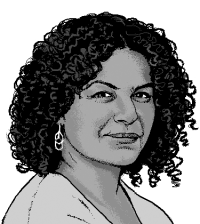
When I was growing up, I spent summers in my parents’ native South India. In the mornings, I’d sit on the veranda of my grandparents’ house as clusters of little girls in blue jumpers, starched blouses, and stiff pigtails walked past me on their way to the village elementary school. They’d stare (Who’s that girl in the foreign clothes?) and I’d stare right back (Who are those girls with the bright ribbons in their hair and the shiny tiffin boxes swinging on their arms?).
The experience was disorienting. Watching those girls was like gazing into a mirror that should have been. The mirror that would have been if my parents hadn’t moved to America.
Now, decades later, I still experience this disorientation. My world feels too thin—or I feel too thin in it—and I think: I could have been a village housewife, raising chickens, milking cows, and drawing water from a well. I could have been a woman who doesn’t write, speak, or think in English. How is it that I wear jeans, not saris? Sport highlights, not headscarves? Why did I become this me, this American me? I could so easily have become another.
Read our latest issue or browse back issues.
In some ways, the world my immigrant parents created for me was the world of those beribboned schoolgirls. America was alien territory in our early years here, and in their dislocation and homesickness, my parents tried to reproduce the village they missed in the child they loved. It was a project destined to fail, but that didn’t stop them from trying.
There’s a line from Walter Brueggemann—I first encountered it in Barbara Brown Taylor’s Leaving Church—that stops me in my tracks every time I read it: “The world for which you have been so carefully prepared is being taken away from you by the grace of God.” Perhaps it’s my upbringing that makes this quote hit me so hard. I know incoherence well—the incoherence of being groomed for a world I don’t actually inhabit.
I was groomed for a particular religious world, too. Like many Christians, I was carefully prepared for a specific expression of faith, a specific relationship to the church, a specific experience of God. I was prepared to live in a world where the Bible is straightforwardly sufficient for my hardest questions. I was groomed for a world in which God’s activity is self-evident; discernible answers to prayer are my spiritual birthright; and perpetual hope, fervor, certainty, and joy constitute the norms of the life of faith.
But in the world I actually inhabit these days, the God I perceive—when I perceive God at all—is mysterious and elusive. While I’ve definitely known hope, fervor, certainty, and joy in my life, I’ve also known despair, apathy, doubt, and grief. In recent years, I’ve known the latter more often.
“By the grace of God,” writes Brueggemann. It’s by the grace of God that my world has been stretched, upended, and remade. I don’t disagree with that, but I wrestle with it—because it’s the long view. It’s the wisdom that comes in retrospect. The problem is, I only have the now, the raw experience itself.
For me, the raw experience is hard. It’s a stripping away, a breaking down, a hollowing. Sometimes it feels like death—a slow, stubborn death with a timetable aggravatingly its own. No matter how much my heart clamors for a quick resurrection, this death says, “No, not yet. There’s more.” More hollowing, more stripping, more fire.
Who knew that God would fight for something wholly other than an easy piety? Who knew that God would insist on bare bones before asking if these bones will live?
In God in Pain, Taylor argues that disillusionment is essential to the Christian life: “It is almost always a painful thing,” she writes, but “it is never a bad thing, to lose the lies we have mistaken for the truth.” I agree, but I have questions: To what end? For what purpose? Where will this grace of God lead?
Like many bicultural kids, I grew up wishing for a world spacious enough to accommodate all of me: the American me, the Indian me, the conflicted me. As a child, I didn’t have the language to express it, but what I hungered for was coherence. I wanted my inner and outer lives to align.
Nowadays, I wonder if God wants coherence, too. What if the religious world I was so carefully prepared for limits God as much as it limits me, and God longs for freedom as passionately as I do? What if God has personal stakes in asking me to honor what is rather than what piety, tradition, and dogma keep insisting should be? Maybe God is asking for room—room to exist in my life in God’s full complexity.
The irony is, this is the very thing I’ve wanted since I was a child. To live an unfettered life. To be transparent, authentic, seen and known for who I truly, wholly am. Is it possible that God shares this hunger? I wonder if my core desire has been a magnet all these years, pulling me closer and closer to God’s own heart.
If so, then Brueggemann is right, and I am surrounded by grace. If so, then this painful dismantling of my world is God’s gift to both of us. Because when it’s over, I will finally be free to give God the desire of God’s heart. I will finally inhabit a world spacious enough to welcome the fullness of who God is.






